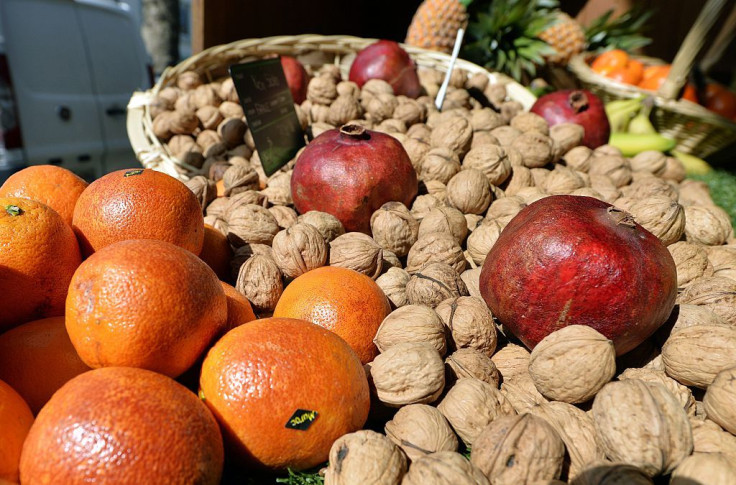Healthful Plant-Based Diet May Play ‘Significant Role’ In Prevention Of Type 2 Diabetes

Nearly 10 percent of the American population has diabetes, and that number appears to be rising as obesity also increases. Among people who are prone to developing Type 2 diabetes, which often occurs in adults who are overweight and inactive, the best preventive strategy may lie in a plant-based diet, according to a new study out of Harvard T.H. Chan School of Public Health.
The researchers examined how a plant-based diet filled with whole grains, fruits, vegetables, nuts, and legumes could reduce an individual’s risk of the disease. Type 2 diabetes involves glucose, or blood sugar, levels building up in your bloodstream due to a lack of insulin, and can lead to excessive thirst, frequent urination, dry mouth, blurry vision, yeast infections, foot pain, and other symptoms.
It may be common knowledge that vegetarian or plant-based diets may be better for diabetes, or prediabetes, patients. But in reality, many people who believe they’re eating a healthy vegetable-filled diet may actually be eating a not-so-healthy one. Those who stick to sweetened foods and beverages, or some animal products, may not be getting the same benefits as those who are eating a truly healthy plant-based diet. So the researchers wanted to compare the two diet pathways to see whether there was a difference in benefits.

In the study, they examined over 200,000 women and men who worked in health professions in the U.S. Over the course of 20 years and within three different studies, the participants filled out questionnaires about their diets, lifestyles, medical histories, and new disease diagnoses. In order to identify the levels of their plant-based diets, the researchers gave plant foods higher scores and animal foods lower scores. Participants who adhered to a plant-based diet that was low in animal foods had a 20 percent reduced risk of Type 2 diabetes. Those who stuck to a healthy plant-based diet (meaning it was free of refined grains, potatoes, and sugary beverages) had an even better outcome, with a 34 percent reduced risk of diabetes. People who ate a less healthy plant-based diet, surprisingly, actually had a 16 percent increased risk.
“A shift to a dietary pattern higher in healthful plant-based foods, such as vegetables, fruits, whole grains, legumes, nuts, and seeds, and lower in animal-based foods, especially red and processed meats, can confer substantial health benefits in reducing risk of type 2 diabetes,” said Frank Hu, professor of nutrition and epidemiology at Harvard Chan School, and an author of the study, in a press release.
Past research has shown that physical activity could reduce diabetes risk, particularly high levels of cardio fitness. Cutting calories (eating in moderation) and weight loss has also been shown to aid in treating diabetes. It’s important to note, however, that a 2015 study found that both animal and plant protein actually helped people with Type 2 diabetes manage their glucose levels, so cutting out animal protein entirely may not be necessary. Reducing your animal food intake to moderate amounts, however, may help. But perhaps most importantly, cutting out the unhealthy parts of plant foods like refined grains or sweetened items make the biggest difference.
"This study highlights that even moderate dietary changes in the direction of a healthful plant-based diet can play a significant role in the prevention of type 2 diabetes," said Ambika Satija, postdoctoral fellow in the Department of Nutrition and lead author of the study, in the press release. "These findings provide further evidence to support current dietary recommendations for chronic disease prevention."
Source: Satija A, Bhupathiraju S, Rimm E, Spiegelman D, Chiuve S, Borgi L, et al. Plant-Based Dietary Patterns and Incidence of Types 2 Diabetes in US Men and Women: Results from Three Prospective Cohort Studies. PLOS Medicine, 2016.



























